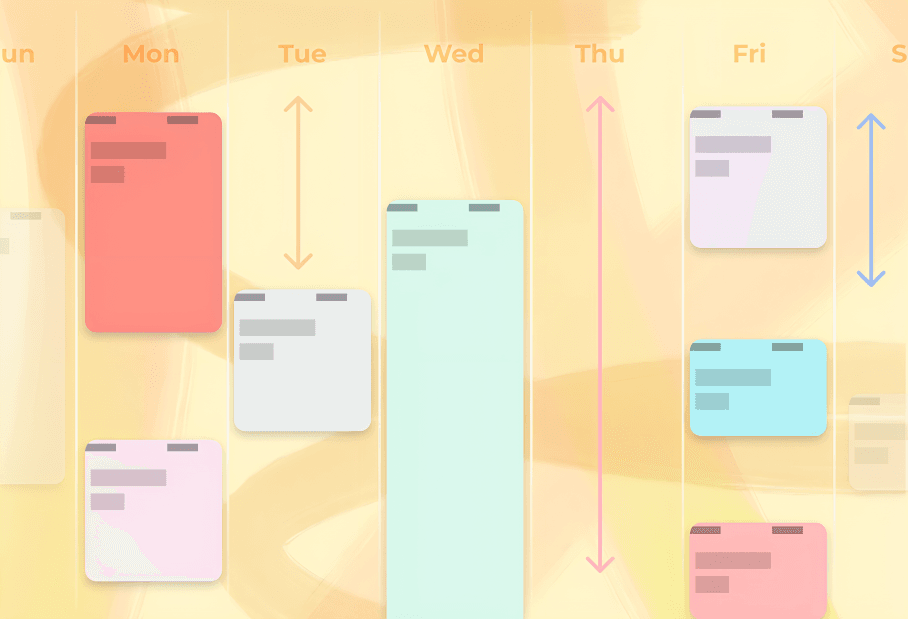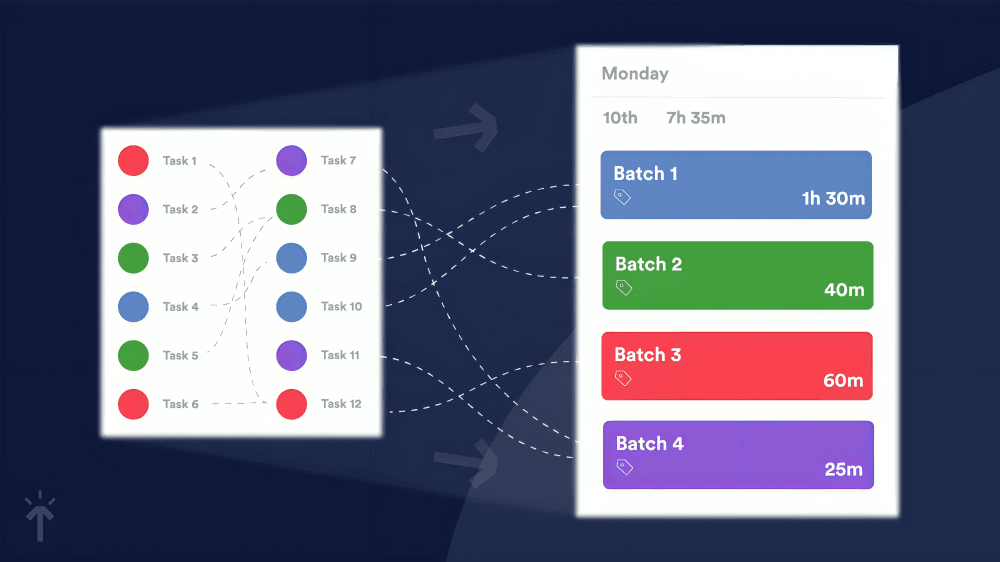
“
If you want to achieve more and feel less overwhelmed, it’s essential to plan your week for productivity. A structured approach helps align your goals, saves time, and reduces daily decision fatigue. Knowing when to tackle tasks, rest, and prioritize your energy can make a huge difference in your weekly output. 1
1
”
Begin your weekly planning on Sunday evening or early Monday. It prepares your brain for the tasks ahead and helps you visualize priorities, goals, and deadlines before the week even begins. 1
Writing down your weekly goals significantly increases the chances of accomplishing them. This small habit programs your brain to stay focused and reduces the risk of distractions disrupting your path. 2

Blocking out time on your calendar for deep work boosts productivity. Assigning specific slots to major tasks minimizes multitasking and increases your brain's ability to enter a focused, efficient workflow.
Organizing your week around energy levels rather than clock time is more effective. Tackle creative or challenging work during high-energy periods and save admin tasks for lower-energy times. 3
According to productivity coach and psychologist Dr. Cal Newport, deep work requires intentional planning. Weekly structure supports mental discipline and allows peak focus for truly valuable outcomes. 4
Always include buffer time between tasks or appointments. It reduces stress, allows room for unexpected changes, and prevents a tightly packed schedule from falling apart after one delay. 5
Color-coding your planner or digital calendar by task type helps you visualize workload distribution. It enhances clarity, enabling better balance between work, personal life, and rest. 6
Midweek reviews—usually on Wednesday—help adjust plans, re-prioritize tasks, and keep your goals visible. It serves as a mental reset to keep you motivated and organized until the weekend. 7
Focusing on just three top weekly priorities can deliver better results than juggling ten tasks. It helps narrow your focus, improve quality, and avoid the trap of busyness without real progress. 8
Plan time for breaks and self-care just like meetings. Including rest in your weekly schedule promotes mental clarity and long-term productivity by preventing burnout and fatigue. 9

Grouping similar tasks together—called task batching—reduces cognitive load. Answering emails, making calls, or editing content in one session improves speed and mental efficiency.
Setting weekly goals that align with your long-term vision keeps you purpose-driven. It helps each week become a building block toward meaningful achievements rather than scattered efforts. 10
Avoid planning every single minute of your week. Overplanning can create rigidity, while a flexible structure allows room for creativity, quick decisions, and life’s unexpected moments. 11
Scheduling time for learning or skill development ensures consistent personal growth. Even 30 minutes a week keeps you improving, sharpens your mind, and maintains career competitiveness. 12
Plan meals, workouts, and household chores alongside work tasks. Integrating personal responsibilities into your schedule creates a better life balance and prevents overwhelm during busy days. 13

Use a mix of digital tools and paper planners if needed. Choose systems that suit your style and allow easy editing, tracking, and reviewing of weekly priorities and habits.
Consider time zones and external commitments before finalizing your weekly plan. It avoids scheduling conflicts and ensures smoother coordination with colleagues, clients, or family.14
Plan fun or social time into your week intentionally. Looking forward to joyful experiences boosts mood and motivation and gives your brain a healthy break from focused, high-demand tasks. 15
Don’t fear adjusting your weekly plan when needed. Flexibility is a strength, not a failure—it allows for real-time changes while still preserving your overall direction and intent. 16
Prioritize tasks using Eisenhower’s Matrix—urgent vs. important. It helps filter low-value activities and ensures you spend time on what truly matters rather than reacting to every request.17


